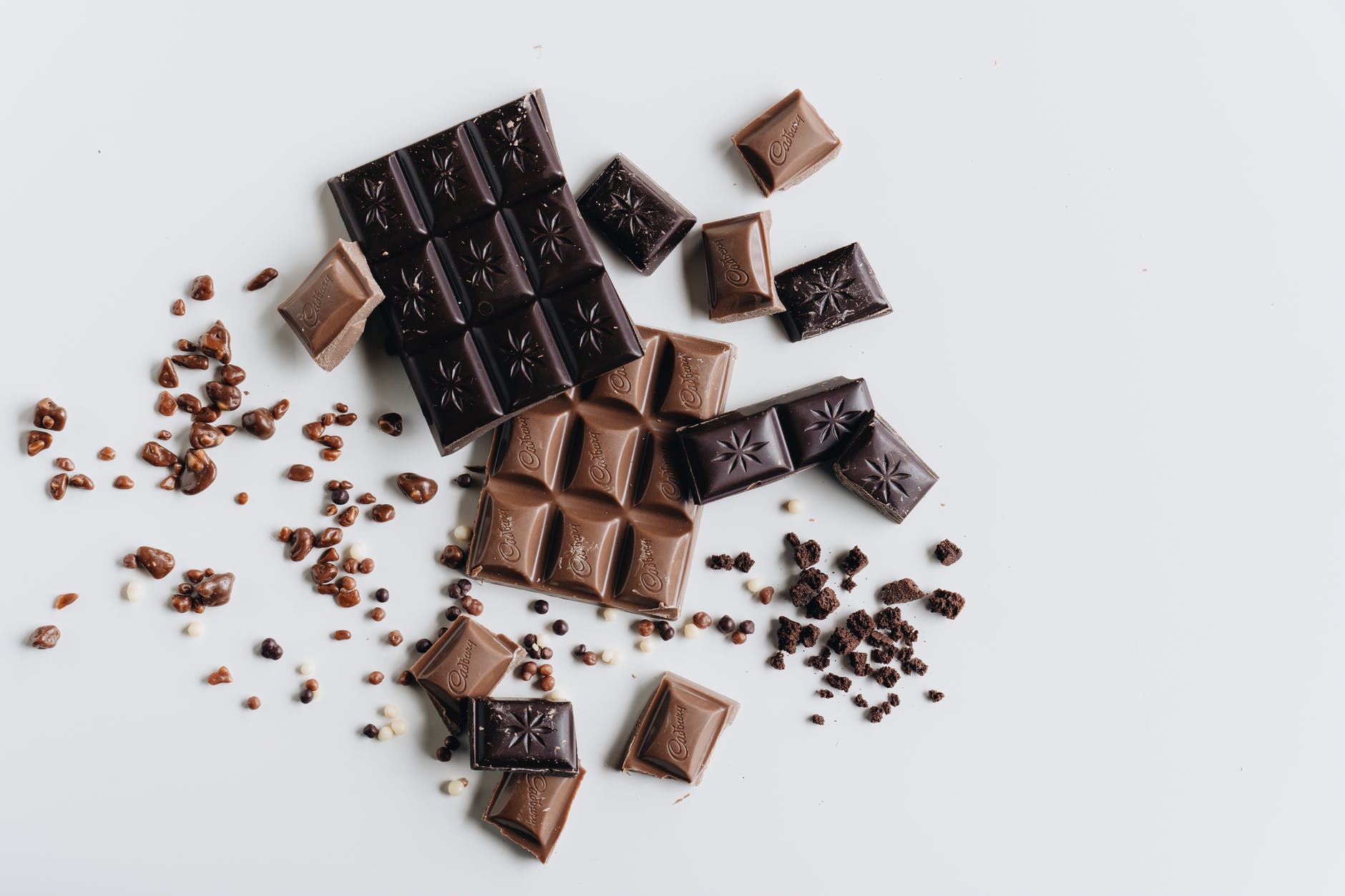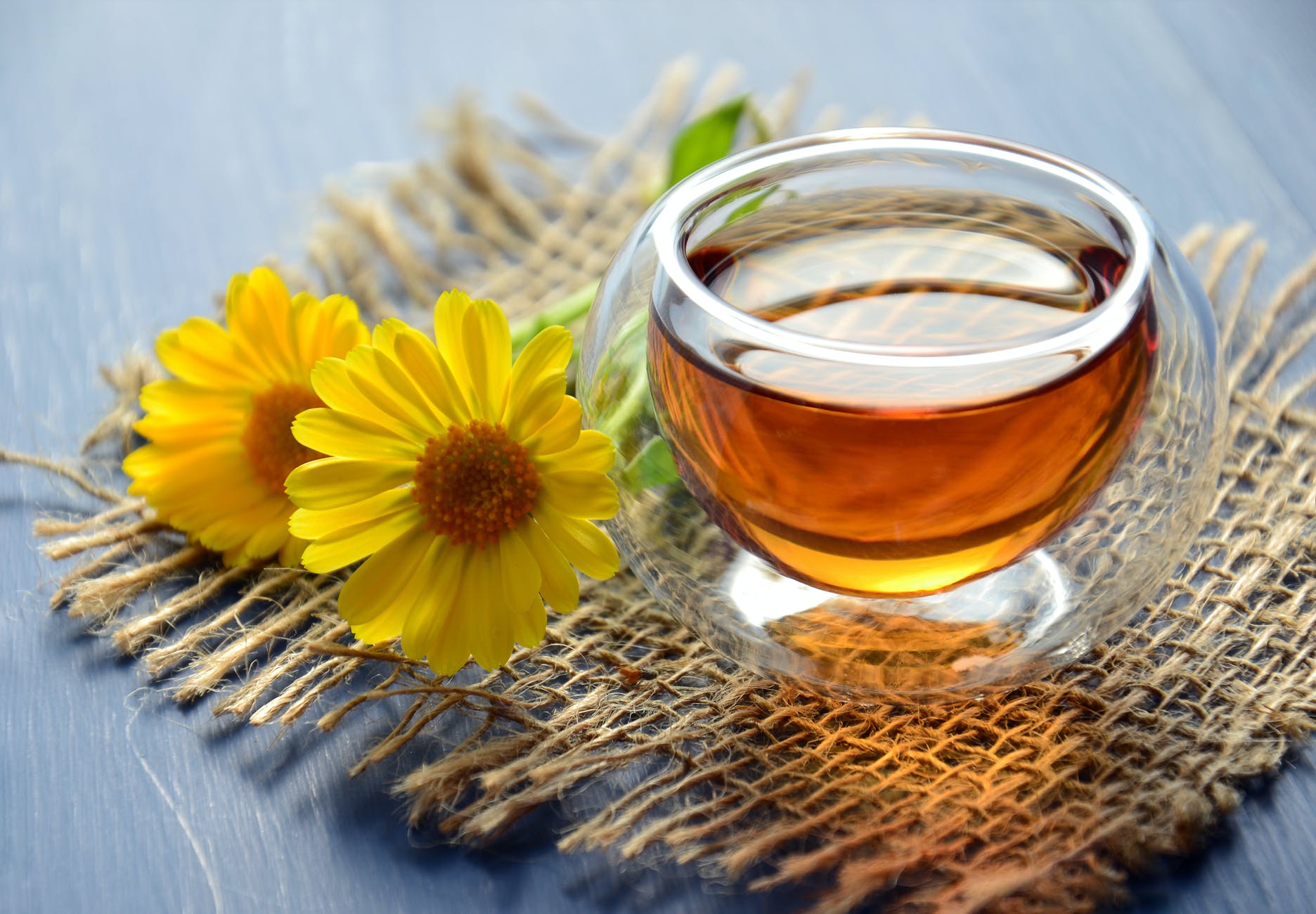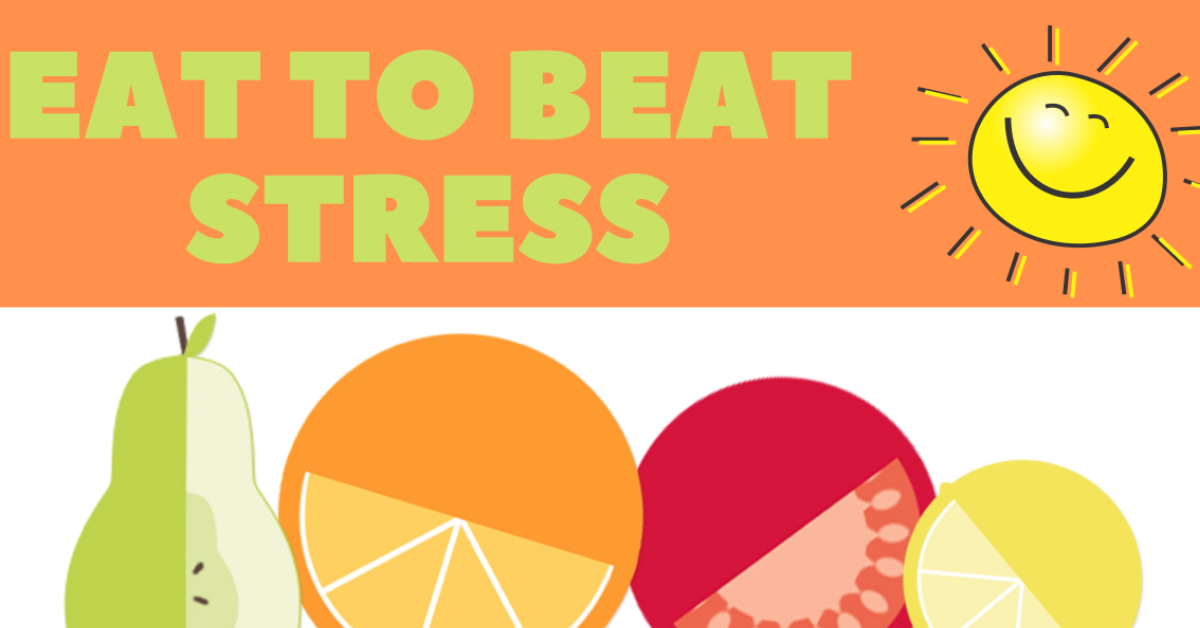Guest post by Chelsea Mangold, MPH, RD2b
It’s the month of LOVE @ DWD! To celebrate, we are focusing on the theme of practicing self- love via self-care. One of the best ways to incorporate self-care is to make sure you’re nourishing yourself well! The previous year undeniably took a toll on us- physically, financially, and especially emotionally. It should also be noted that the effects of the ongoing COVID-19 pandemic have disproportionately burdened some of us more than others- namely Black and Brown communities. It only seems fitting to direct our attention to the topic of stress (such as pandemic-induced stress), its implications on our health, and how our practicing a little self-care through healthy eating may be able to mitigate some of the effects of living through tense times. Let’s dive in and see how we can nurture self- love through good food, and help to manage stress and anxiety along the way.
Stress: The Facts
Over one-third of Americans report living under extreme stress.1 We hear the term stress getting thrown around A LOT, especially recently. So what exactly is it? Stress is the normal physiological response stimulated in our bodies by a perceived threat. Prehistorically, threats looked more like predatory creatures trying to eat us, and having to devise an escape plan. These days, a stress response can be triggered by less-life threatening situations, even the simple idea of a threat.2 Picture this: You are starting a new job, and your train is severely delayed, making you late on your first day. While this scenario may not be life or death, you may (understandably) perceive this as a threat to your livelihood (our modern day life-or-death). And there you are: a sweating and flushed example of the fight-or flight response, your heart beating with anxiety.
While the types of perceived and experienced threats have shifted due to evolution, the physiologic response (including increased blood pressure and heart rate, diversion of blood flow away from the digestive tract, and a flood of stress hormones such as cortisol epinephrine and norepinephrine) remain the same. Our stress response is necessary to deploy essential neural and hormonal pathways to increase cardiovascular, muscular, and cognitive function–all in the name of keeping us safe.2 Typically these short term stress responses result in an activation of inflammatory response in the body–for instance, following an injury or illness, stress hormones stimulate the release of inflammatory substrate (called cytokines) which help to repair cellular damage.3 These short-term episodes of activated inflammatory response pose relatively little danger for overall health. However, living under conditions of chronic stress (such as living paycheck to paycheck, or experiencing systemic racism) can increase inflammation and the circulation of stress hormones in the body.4 Over time, this chronic inflammation and prolonged stress response can lead to negative outcomes like anxiety disorders, depression, and chronic illness.1
How Nutrients Can Assist in Management of Stress
There are a multitude of vitamins, minerals, and phytonutrients that can help minimize the body’s stress response and decrease the risk of chronic inflammation.
Key Nutrients to Curb Stress
- Folate:
- Stimulates the feel good neurotransmitter dopamine which boosts mood and relaxation5
- Found in: green leafy vegetables, broccoli, brussel sprouts, fortified cereals
- Click here for an easy smoothie recipe to boost your folate intake!
- Magnesium:
- Mineral involved in neurotransmitter modulation; affects the release of stress hormones from adrenal glands6,7
- Found in: nuts, seeds, green leafy vegetables, avocado, dark chocolate, legumes, whole grains
- Omega 3 Fatty Acids:
- Stress depletes these important anti inflammatory substances. Researches shows supplementation and increased intake of Omega-3s is linked to cortisol (stress hormone) stabilization8
- Omega 3s support general brain health and cognitive function9
- Found in: salmon, mackerel, cod liver oil, flax, chia seeds, walnuts, avocado
- Antioxidants:
- Compounds in food that neutralize inflammation-causing free-radical damage; decrease risk of chronic inflammation10
- Found in: almost all plant foods! Berries and leafy greens are great sources
- Probiotics:
- Research shows there is a connection between gut microbiome and brain health
- Consuming probiotic rich foods may promote healthy gut flora so your brain can react better to stressful environments11
- Found in: fermented foods such as yogurt, sauerkraut, kimchi, tempeh, miso, kombucha, pickles
- Flavonoids:
- Type of antioxidant shown to decrease circulating levels of catecholamines–AKA fight or flight hormones
- Found in: dark chocolate, with high cacao content12

- Tryptophan (amino acid):
- Precursor to serotonin, a neurotransmitter that promotes better mood and less anxiety
- Found in: Eggs, cheese, pineapple, tofu, salmon, nuts, seeds13,14
- Vitamin C:
- Antioxidant that can clear the stress hormone cortisol from the blood15
- Found in: citrus fruits, kiwi, strawberries, pineapple, broccoli, Brussels sprouts, peppers, potatoes
A limited body of research shows the beneficial effects of herbal treatments such as teas or supplements to reduce stress. Many of these herbal treatments contain what are known as nootropics—chemical compounds within the plant that can reduce symptoms of anxiety and improve mood. Chinese & Ayurvedic Medicine have long encouraged the consumption of nootropic-containing herbal blends to improve brain health and promote relaxation. Examples include chamomile tea, ginseng, lemon balm, and Ashwagandha.16,17

Eating Patterns
Establishing a regular eating pattern- wherever possible- can help to manage feelings of stress and anxiety. Literature reveals that skipping meals can increase feelings of anxiety and stress. Eating 3 meals a day, with a variety of whole foods, and including many of the components discussed above may help to combat stress.18
What To Do if Food Access is a Source of Stress
Limited access to food itself can lead to feelings of stress. Over time, this may manifest in anxiety- or even disordered eating behavior. Lack of access to healthful foods can also increase risk of other negative medical or psychological outcomes such as malnutrition or chronic disease. If food access is an issue for you or someone you know- make sure to reach out to your local community health organization where you can find more information on the Supplemental Food and Nutrition Program (SNAP) & eligibility. Mothers experiencing food insecurity may also be eligible for WIC (Women Infants & Children)-a staple food support program. In addition, Feeding America has an outstanding database of food assistance programs across the nation.
Key Takeaways
Achieving a balance of mindful movement and meditation, plenty of sleep, and a healthful diet may sound easier said than done! The best advice is to think about one or two small changes you may be able to make, such as taking a 10-minute dance break each day, or adding a new mood-boosting food to your diet this week. Even a small change can have a big impact on our stress levels!
If you find that stress is affecting your daily functional ability, you may want to seek the guidance of a behavioral health specialist such as a licensed psychologist. That said, research shows that what we eat can help to offset some of the undesirable symptoms of stress, by promoting hormone regulation and keeping inflammation levels in check. Please remember to always consult with your licensed healthcare provider(s) before beginning any diet or lifestyle change, and before taking any supplements. Always choose a qualified Registered Dietitian Nutritionist (RDN)—like DishWithDina—to help you develop an individualized nutrition treatment plan based on your needs.
Click here for a *FREE* downloadable handout on how to beat stress with food.
Image credits: Unsplash, Jeshoots, Brooke Larke, Sara Saiovici
References:
- Daily Life. The American Institute of Stress. https://www.stress.org/daily-life. Published December 18, 2019.
- Dhabhar FS. The short-term stress response – Mother nature’s mechanism for enhancing protection and performance under conditions of threat, challenge, and opportunity. Frontiers in neuroendocrinology. https://www.ncbi.nlm.nih.gov/pmc/articles/PMC5964013/. Published April 2018.
- Watkins LR, Milligan ED, Maier SF. Glial proinflammatory cytokines mediate exaggerated pain states: implications for clinical pain. Adv Exp Med Bio
- Laura B. Zahodne, A. Zarina Kraal, Afsara Zaheed, Penelope Farris, Ketlyne Sol, Longitudinal effects of race, ethnicity, and psychosocial disadvantage on systemic inflammation,
- Ho PI, Ashline D, Dhitavat S, Ortiz D, Collins SC, Shea TB, Rogers E. Folate deprivation induces neurodegeneration: roles of oxidative stress and increased homocysteine. Neurobiol Dis. 2003 Oct;14(1):32-42. doi: 10.1016/s0969-9961(03)00070-6. PMID: 13678664.
- Sartori SB, et al. (2012). Magnesium deficiency induces anxiety and HPA axis dysregulation: Modulation by therapeutic drug treatment. DOI: 10.1016/j.neuropharm.2011.07.027
- Boyle NB, et. al. (2017). The effects of magnesium supplementation on subjective anxiety and stress. A systematic review. DOI: 10.3390/nu9050429
- Thesing CS, et al. Psychoneuroendocrinology. 2018. 97: p. 206-215.
- Publishing HH. Protect your brain with. Harvard Health. https://www.health.harvard.edu/mind-and-mood/protect-your-brain-with-good-fat.
- Tan BL, Norhaizan ME, Liew W-P-P, Sulaiman Rahman H. Antioxidant and Oxidative Stress: A Mutual Interplay in Age-Related Diseases. Frontiers in pharmacology. https://www.ncbi.nlm.nih.gov/pmc/articles/PMC6204759/#__ffn_sectitle. Published October 16, 2018. Accessed February 5, 2021.
- Mayer EA, Tillisch K, Gupta A. Gut/brain axis and the microbiota. J Clin Invest. 2015 Mar 2;125(3):926-38. doi: 10.1172/JCI76304. Epub 2015 Feb 17. PMID: 25689247; PMCID: PMC4362231.
- Sanaz Mehrabani, Arman Arab, Hamed Mohammadi, Reza Amani,The effect of cocoa consumption on markers of oxidative stress: A systematic review and meta-analysis of interventional studies,Complementary Therapies in Medicine,Volume 48,2020,102240,
- Bamalan OA, et al. (2019). Physiology, serotonin. ncbi.nlm.nih.gov/books/NBK545168/
- Briguglio M, et al. (2018). Dietary neurotransmitters: A narrative review on current knowledge. ncbi.nlm.nih.gov/pmc/articles/PMC5986471/
- Brody S, Preut R, Schommer K, et al. A randomized controlled trial of high dose ascorbic acid for reduction of blood pressure, cortisol, and subjective responses to psychological stress. Psychopharmacology 2002;159:319-24. 10.1007/s00213-001-0929-6
- Chandrasekhar K, Kapoor J, Anishetty S. A prospective, randomized double-blind, placebo-controlled study of safety and efficacy of a high-concentration full-spectrum extract of ashwagandha root in reducing stress and anxiety in adults. Indian journal of psychological medicine. https://www.ncbi.nlm.nih.gov/pmc/articles/PMC3573577/. Published July 2012.
- Nootralize. 5 Science-Backed Nootropics for Stress Reduction. Psychology Today. https://www.psychologytoday.com/us/blog/experience-engineering/202007/5-science-backed-nootropics-stress-reduction. Published July 23, 2020.
- Bourne EJ. The Anxiety & Phobia Workbook. Oakland, CA: New Harbinger Publications, Inc.; 2020.
Chelsea Mangold, MPH, is a Public Health Nutritionist and future Registered Dietitian.



0 Comments